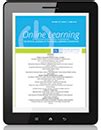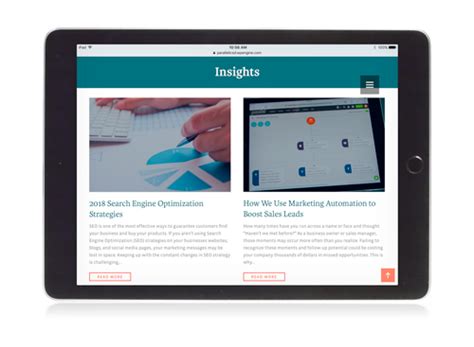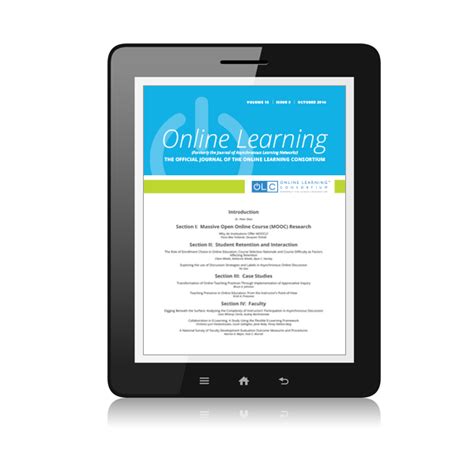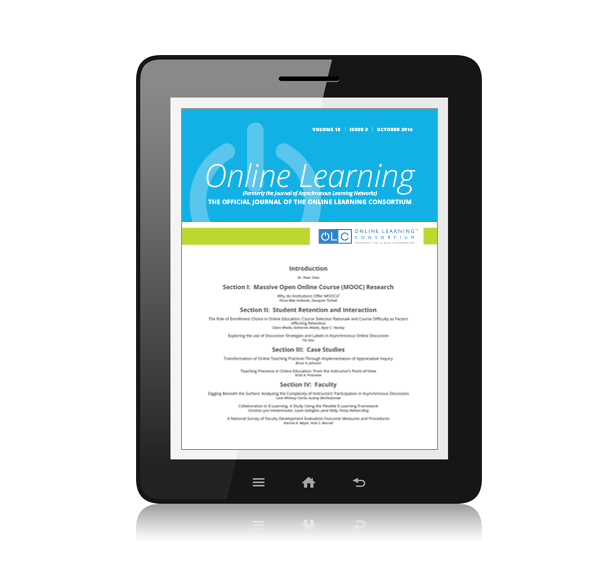In the realm of online learning, students often face a unique challenge known as online disinhibition—a phenomenon where the virtual environment diminishes self-restraint and focus. This can lead to distractions, procrastination, and diminished academic performance. Understanding the nature of online disinhibition and its triggers is crucial for overcoming these barriers. This article explores effective strategies to combat disinhibition, including setting clear learning objectives, creating a structured study schedule, and utilizing tools to minimize distractions. Additionally, we will delve into techniques for developing self-regulation, the importance of mindfulness, and how to create an optimal study environment. By addressing these factors, students can enhance their focus and achieve more successful online learning experiences.
hotigames.com will take you through an extensive exploration of this topic.
1. Understanding Online Disinhibition: Definition and Impact on Learning
Online disinhibition refers to the tendency for individuals to act with less restraint and more impulsiveness in digital environments compared to face-to-face interactions. This phenomenon often arises from the perceived anonymity and reduced social cues present in online settings. As a result, students may experience a sense of detachment from their actions and their consequences, leading to decreased self-discipline and focus.
In the context of online learning, disinhibition can significantly impact academic performance. The lack of physical presence and immediate feedback from instructors and peers can create a sense of isolation, making it easier for students to stray from their learning objectives. Distractions such as social media, notifications, and the temptation to multitask further exacerbate this issue, reducing students’ ability to concentrate on their studies.
Understanding the nature of online disinhibition is essential for developing strategies to mitigate its effects. By recognizing how the digital environment influences behavior, students can adopt effective techniques to enhance their focus and maintain academic discipline. Addressing these challenges proactively helps create a more productive and engaging online learning experience, ultimately leading to better educational outcomes.

2. Identifying Triggers of Online Disinhibition in Digital Environments
Identifying triggers of online disinhibition is crucial for managing its impact on learning. One primary trigger is the sense of anonymity that digital environments provide. When students feel less accountable for their actions due to the lack of face-to-face interaction, they may be more likely to engage in distractions and procrastination.
Another significant trigger is the constant influx of notifications and digital stimuli, such as social media updates, emails, and messaging apps. These interruptions can fragment attention and make it difficult for students to maintain focus on their studies.
The design of digital platforms themselves can also contribute to disinhibition. Features like endless scrolling and interactive content can create a hyper-stimulating environment that promotes impulsive behaviors and reduces the ability to concentrate.
Lastly, the absence of immediate feedback from instructors or peers can exacerbate disinhibition. Without regular check-ins or real-time responses, students might struggle to stay motivated and adhere to their learning goals. Recognizing these triggers allows students to implement strategies to counteract their effects and enhance their learning experience.

3. The Role of Social Media in Reducing Academic Focus
Social media plays a significant role in reducing academic focus by introducing constant, alluring distractions. Platforms like Facebook, Instagram, and Twitter are designed to capture and hold attention with their engaging content, notifications, and updates. This constant stream of information can easily divert students from their study goals, making it challenging to maintain concentration on academic tasks.
The visual and interactive nature of social media platforms creates a highly stimulating environment that can fragment attention and reduce the ability to engage deeply with educational material. Students may find themselves repeatedly checking their feeds or engaging in online conversations, leading to interruptions and procrastination.
Moreover, social media often fosters a sense of comparison and competition, which can impact students’ motivation and self-discipline. The pressure to stay connected and up-to-date with peers can detract from the time and energy dedicated to studying. Understanding the influence of social media on academic focus is essential for developing strategies to minimize its disruptive effects and enhance productiv

4. Strategies for Setting Clear Learning Objectives to Counteract Disinhibition
Setting clear learning objectives is a powerful strategy to counteract online disinhibition and maintain focus. By establishing specific, measurable, and achievable goals, students can create a structured approach to their studies that minimizes distractions and enhances motivation.
Begin by defining what needs to be accomplished in each study session. Break down larger tasks into smaller, manageable objectives to avoid feeling overwhelmed and to maintain a sense of progress. For example, rather than a vague goal like “study for biology,” set a clear objective such as “complete Chapter 3 review and quiz by 3 PM.”
Incorporate deadlines for each objective to create a sense of urgency and accountability. Use tools like calendars, to-do lists, or digital planners to track progress and stay organized. Regularly review and adjust objectives based on performance and changing priorities.
Additionally, aligning learning objectives with personal interests and long-term goals can increase engagement and commitment. By making objectives relevant and meaningful, students are more likely to stay focused and resist the temptation of online distractions. This structured approach helps build discipline and ensures that time spent online is productive and goal-oriented.
5. Creating a Structured Online Study Schedule for Better Discipline
Creating a structured online study schedule is essential for fostering discipline and improving focus. Start by allocating specific times for study sessions, ensuring they are consistent and aligned with your peak productivity periods. Use a calendar or planner to map out daily or weekly study blocks, incorporating regular breaks to prevent burnout.
Prioritize tasks based on deadlines and difficulty, and set realistic goals for each study session. For example, designate certain hours for reading, assignments, or review sessions, and stick to these commitments as you would any other scheduled appointment.
Incorporate time for self-assessment and reflection to evaluate progress and adjust the schedule as needed. Using scheduling tools and apps can also help keep track of tasks and deadlines, minimizing the risk of procrastination.
By following a structured study schedule, students can enhance their time management skills, create a routine that supports focused learning, and develop the discipline necessary to overcome online di
6. Tools and Apps to Minimize Online Distractions and Enhance Focus
Utilizing tools and apps designed to minimize online distractions and enhance focus can significantly improve productivity in online learning environments. One effective category of tools is website blockers, such as Freedom or StayFocusd. These apps allow users to restrict access to distracting websites or social media platforms during study sessions, helping to maintain concentration.
Time management apps like Forest or Focus@Will can also be beneficial. Forest encourages users to stay focused by growing a virtual tree during uninterrupted work periods, while Focus@Will provides specially designed music tracks to enhance concentration and productivity.
For task organization, apps like Todoist or Microsoft To Do help manage and prioritize study tasks, offering reminders and deadlines to keep students on track. Additionally, note-taking apps such as Evernote or Notion can help streamline study materials and keep information organized, reducing the need for frequent online searches and interruptions.
Using these tools in combination with a structured study schedule can significantly reduce distractions and support a more disciplined approach to online learning. By integrating these apps into daily routines, students can create a more focused and productive study environment.
7. Techniques for Developing Self-Regulation and Digital Literacy Skills
Developing self-regulation and digital literacy skills is crucial for managing online disinhibition and enhancing focus. Self-regulation involves setting personal goals, monitoring progress, and adjusting behaviors to stay on track. One effective technique is to implement the Pomodoro Technique, which involves working in short, focused intervals followed by brief breaks. This approach helps maintain concentration and reduces the temptation to engage in distractions.
Another key technique is practicing mindfulness and self-awareness. Mindfulness exercises, such as deep breathing or meditation, can improve focus and reduce stress, making it easier to manage online distractions. Regular self-reflection on study habits and productivity can also help identify areas for improvement and adjust strategies accordingly.
Enhancing digital literacy involves understanding and effectively using digital tools and resources. This includes learning to evaluate the credibility of online information, effectively navigating digital platforms, and using productivity apps. Engaging in digital literacy training or workshops can further develop these skills.
By incorporating these techniques, students can improve their ability to regulate their online behavior, utilize digital tools effectively, and create a more focused and productive learning environment.
8. Importance of Mindfulness and Mental Breaks in Online Learning
In online learning, mindfulness and mental breaks play a vital role in maintaining focus and preventing burnout. Mindfulness practices, such as meditation and deep breathing exercises, help students become more aware of their thoughts and feelings, fostering a state of calm and concentration. By incorporating mindfulness into their routine, students can better manage stress and anxiety, which often contribute to distractions and decreased productivity.
Mental breaks are equally important for sustaining long-term focus and performance. Continuous studying without breaks can lead to cognitive fatigue, reducing the effectiveness of learning and increasing the likelihood of distractions. Short, frequent breaks allow the brain to rest and recharge, which can enhance overall learning efficiency. Techniques like the Pomodoro Technique, which incorporates short breaks between study sessions, can help balance intense study periods with restorative pauses.
Taking mindful breaks, such as stretching or engaging in brief, enjoyable activities, can also rejuvenate mental energy and creativity. This practice prevents the monotony of prolonged study sessions and encourages a healthier approach to learning.
Incorporating mindfulness and regular mental breaks into an online learning routine helps maintain a balanced and focused mindset, improving academic performance and overall well-being. By prioritizing these practices, students can create a more effective and
9. Setting Up an Optimal Study Environment to Combat Online Disinhibition
Creating an optimal study environment is essential for combating online disinhibition and enhancing focus. Start by choosing a dedicated study space that is free from distractions and conducive to concentration. This area should be well-organized, with all necessary study materials within reach and minimal clutter to avoid visual distractions.
Ensure that the study environment is ergonomically designed for comfort, with a supportive chair and an appropriately positioned desk. Good lighting is crucial; natural light is ideal, but if that’s not possible, use adjustable lighting to reduce eye strain.
Control digital distractions by using apps and tools to limit access to distracting websites and notifications. Place your phone on “Do Not Disturb” or in another room while studying to minimize interruptions.
Incorporate elements that promote focus and relaxation, such as calming colors or soothing background music. Personalizing the space with items that motivate or inspire you can also enhance your study experience.
Regularly assess and adjust your study environment to ensure it remains effective and supportive of your learning goals. By establishing a dedicated and well-organized study space, students can reduce the impact of online disinhibition and create a more productive and focused l
10. Collaborating with Peers to Stay Accountable and Maintain Focus
Collaborating with peers is a powerful strategy for staying accountable and maintaining focus in online learning. Engaging with fellow students can provide motivation and create a sense of shared purpose. Regularly scheduled study groups or accountability partnerships can help keep you on track with your learning objectives.
Start by forming a study group with classmates who have similar goals or subjects of interest. Use video conferencing tools or collaborative platforms to meet virtually and discuss coursework, share resources, and provide support. These interactions can help reinforce learning, clarify concepts, and offer different perspectives on the material.
Accountability partners can also be effective. Pair up with a peer to set mutual goals and check in regularly on each other’s progress. This relationship encourages consistency and commitment, as you are more likely to stay focused when someone else is aware of your goals and deadlines.
Additionally, participating in online forums or discussion boards related to your field of study can further enhance engagement and accountability. By actively collaborating and communicating with others, students can foster a supportive learning environment that helps combat online disinhibition and improves overall academic performance.
Addressing online disinhibition through clear learning objectives, structured schedules, and effective tools can significantly enhance focus and productivity. By integrating mindfulness practices, creating an optimal study environment, and collaborating with peers, students can overcome distractions and foster a more disciplined approach to online learning, leading to
hotigames.com
